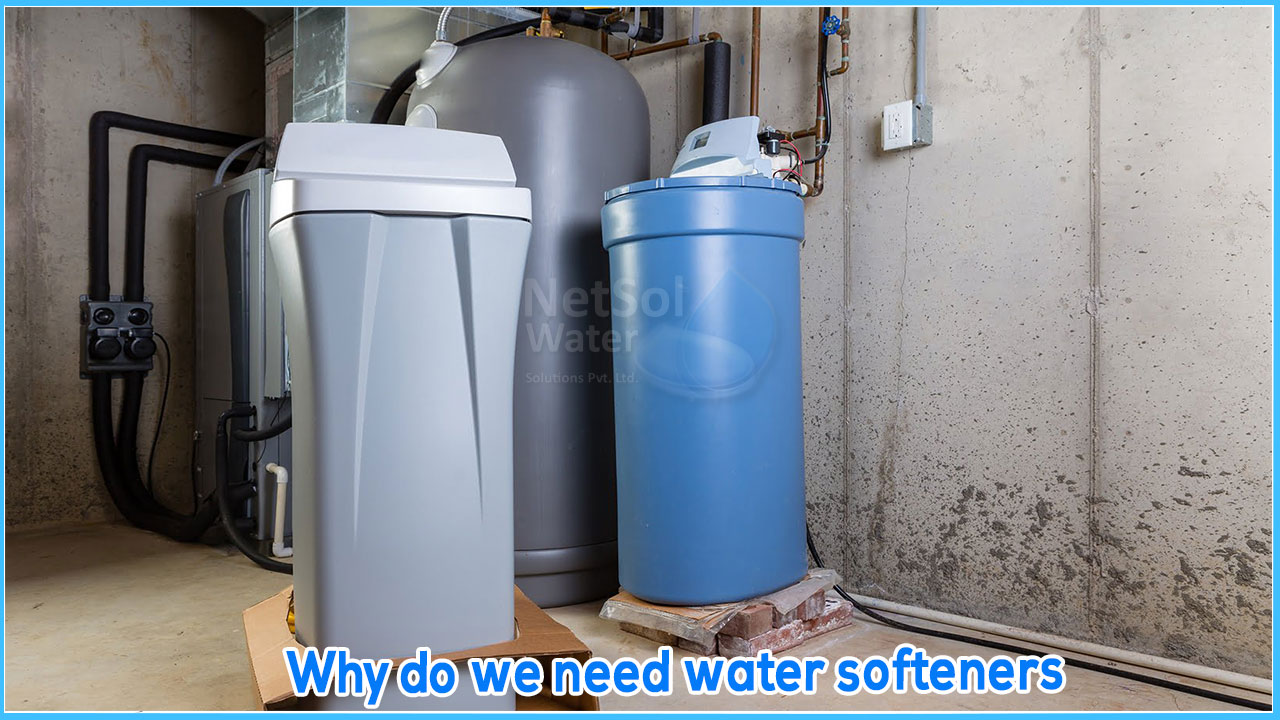 For households who are suffering from the consequences of hard water, a water softener can be a lifeline. However, there are situations when a water softener isn't the best option. Water softeners may remove mineral ions, but they leave microorganisms and heavy metals like lead, mercury, and even iron behind. A water filtration system may be a preferable option for someone who wants better tasting water in their house.
For households who are suffering from the consequences of hard water, a water softener can be a lifeline. However, there are situations when a water softener isn't the best option. Water softeners may remove mineral ions, but they leave microorganisms and heavy metals like lead, mercury, and even iron behind. A water filtration system may be a preferable option for someone who wants better tasting water in their house.
Hard water is defined as water that contains a high concentration of calcium and magnesium. Pipes are known to clog when exposed to hard water, complicate the dissolution of soap and detergent in water and leave water spots. It is critical to protect your home with softened water in order to extend the lifespan of pipes and home appliances by preventing scale build up and clogging. To mitigate the negative effects of hard water, a water softener can be used.
Water softeners are specialised ion exchanges that are designed to remove positively charged ions. Anti-scale systems convert calcium ions into calcium crystals that are stable and will not adhere to pipes, surfaces, hardware, or other fixtures. Because the crystals are so small, the water flow easily rinses them away.
BENEFITS OF HAVING WATER SOFTENER
- 1. SAVES MONEY:Soft water does not contain the mineral ions that cause buildup in pipes and appliances, saves money on costly repairs. Mineral buildup in a pipe restricts the amount of water that can pass through, necessitating higher pump pressure. It will also increase the amount of energy required to maintain the temperature of the water. User's dishwasher, washing machines, coffee machines, water heaters, and ice makers will all suffer as a result of the accumulation, which means more frequent maintenance or replacement costs. By reducing pipe damage, a water softener can cut gas or electric expense.
- 2. CLEANER HAIR AND SOFTER SKIN:While bathing or showering in hard water might be damaging to skin. The ions in hard water strip the skin of its natural oils, drying it up and causing itchy, irritated skin in certain people. While bathing or showering, soft water can be incredibly good to hair and skin. Hard water's mineral ions hinder it from being entirely solvable with soaps, resulting in a soap scum precipitate. Because soft water includes less minerals, it is easier for skin to absorb and retain moisture. Hairs will feel dry, brittle, and frizzy if you use hard water. Soft water can help in balancing hair's pH level, but it can also diminish your hair color.
- 3. LESS TIME CLEANING:If the user lives in a house with hard water, they are well aware of how time-consuming cleaning may be. Dishes and laundry are continuously being re-washed by users. Scrubbing chalky lime and soap scum off the walls of showers, sinks, and faucets may take several hours per week. Water softeners not only mitigate the negative impacts of hard water, but they also totally dissolve and permeate soap, resulting in less insoluble soap scum or curd accumulating in the bathroom, reducing the amount of time spent cleaning on a regular basis
- 4. CLEANER DISHES: If the user lives in a location with hard water, they are aware of the difficulty in keeping dishes clean. Glass and silverware are left with a foggy appearance as soon as they dry, no matter how many times they are cleaned or what soaps or detergents are used. A water softener addresses the issue at its source, eliminating minerals before they may accumulate on their dishes. And, because soft water fuses soaps and detergents more fully, their dishwashing routine produces more lather and cleaning action.
- 5. BRIGHTER AND SOFTER CLOTHES: Some minerals can even leave stains or discolor your teeth. It is preferable to use soft water. Many people add salt to a load of colors to keep them from bleeding, but this isn't essential with a soft water system and sodium exchange. Hard water washes clothes in minerals that leave deposits in the fabric, whereas soft water dissolves garments more easily and cleans them more effectively.



